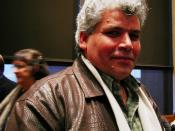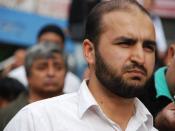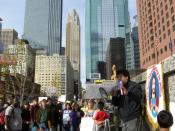Obummer! Obumbles? (Silva 2009 (comments) and bumper stickers! (zazzle). Racial profiling has always been a problem and still is. Racial Profiling became more of a controversy, at least publicly, with the inauguration of the U.S. first Negro president. Even so, there are not many people who can stand up to the effects of racial profiling like Professor Henry Louis Gates (Goodnough, 2009) did, as he made national news with Police Sgt. James Crowley, then they had a beer with President Obama (NBC, 2009). Then, more recently there was Senator Reid's public apology for language, in private, that interprets into a very unbecoming slur (Drake 2010). Those are the prominent people. There are not many people who have the NAACP knocking at their door saying I want to help you but it won't be easy, like movie documentary, American Violet, a true story of Regina Kelly.(Haney, 2009 (2 min trailer)).
Racial profiling is controversial and prominent because it has roots in discrimination and the rights of humans as provided by God and the Constitution of the United States.
Understanding personal biases and learning to control them are the best way to combat racial profiling and discrimination. Discrimination must also be conquered through knowledge and is studied in Blank's (2004) Measuring Racial Discrimination, (71-72) asa descriptive analysis of existing disparities (association) to consider methods of inferential analysis (causation), with a focus on determining the circumstances in which a racial disparity may be attributed, in whole or in part, to racial discrimination. The core measurement issues in which we are interested include the following:â¢measuring the incidence, causes, and effects of racial discrimination;â¢identifying appropriate units of analysis (individual or aggregate level);â¢identifying explanatory mechanisms that lead to discriminatory behaviors and institutional processes;â¢identifying mediating factors and processes that affect observed disparities;â¢measuring the extent or magnitude...


